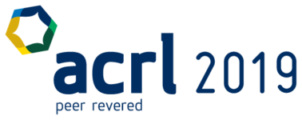Session Description:
In this panel, librarians from four institutions will present the diverse ways they use the Framework to shape first-year students critical thinking and engagement with the research process locally. This includes using the Framework to deepen discussions about information literacy with faculty, as well as develop and assess active-learning strategies and scaffolded instruction, resulting in enhanced integration of Framework concepts in first-year courses.The panelists will engage the audience in an interactive discussion about first-year students and information literacy. Participants will be asked to evaluate opportunities for designing Framework-based collaborations, activities, and assessments for first-year students in their own institutions.
